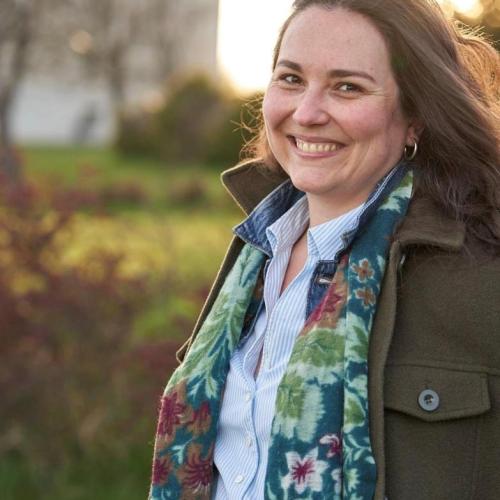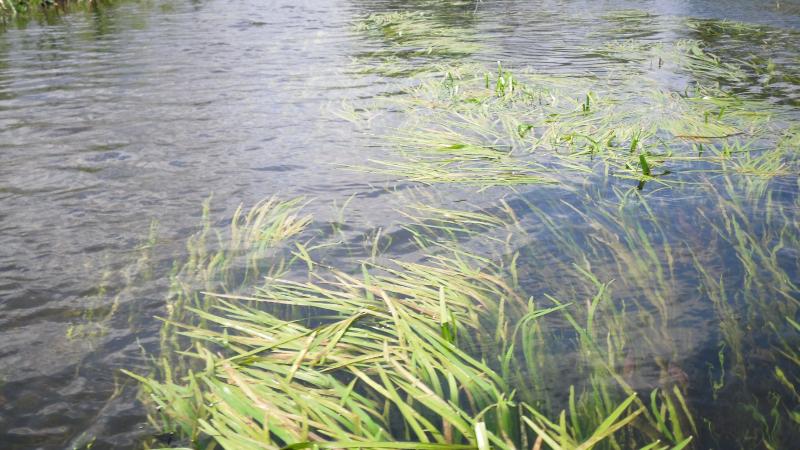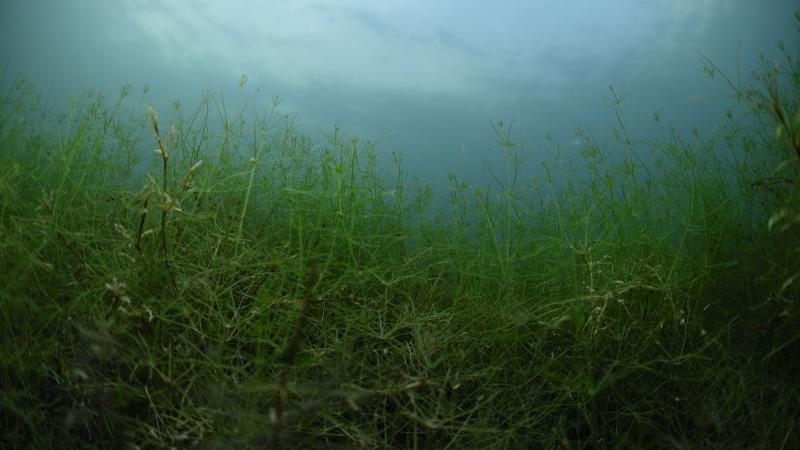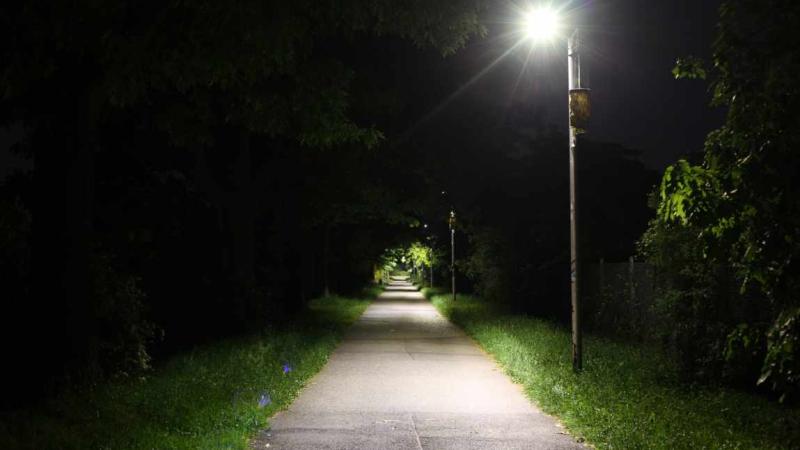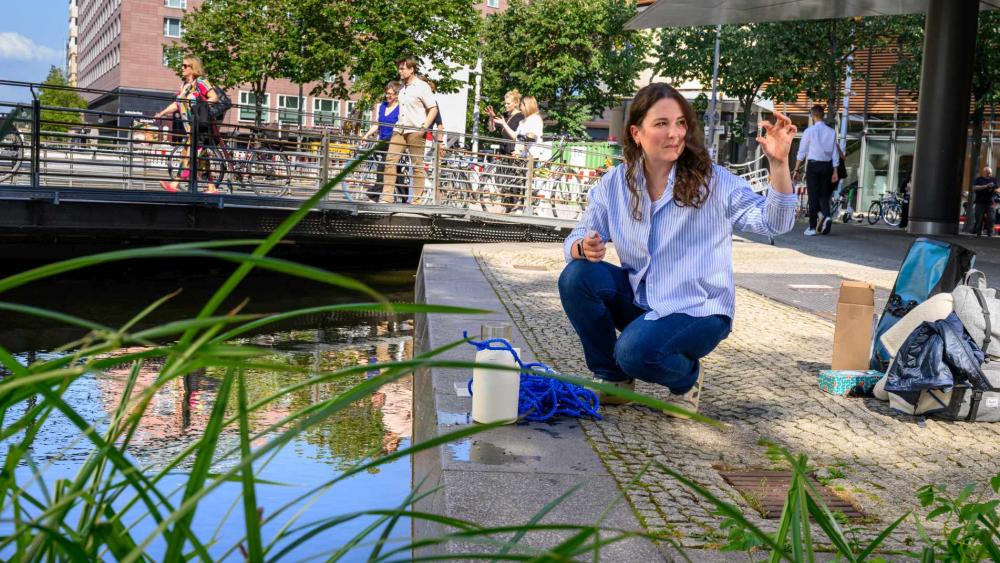
Dr Maria Warter studies typical urban water bodies in Berlin, such as here at Potsdamer Platz. | Photo: David Ausserhofer
In times of increasing extreme weather events and urbanisation, urban water systems are facing significant challenges. Human impact on urban freshwater systems has led to a loss of natural ecosystem functions and aquatic biodiversity. However, rivers, streams, lakes and ponds are of particular importance in the context of climate change and urbanisation, as they provide drinking water, serve as local recreation areas and mitigate heat zones. In the ‘Water-conscious cities of the future’ project (Wasserbesusste Städte der Zukunft), Dr Maria Magdalena Warter and her team at the Leibniz Institute of Freshwater Ecology and Inland Fisheries will investiage how the potential of urban water bodies for people and biodiversity can be sustained through sensible renaturation and design.
_0.jpg)
Dr Maria Warter. | Photo: David Ausserhofer
Berlin is characterised by an incredible diversity of waters, which must be protected and preserved. With my research, I want to contribute to ensuring that water in the city remains accessible and usable for everyone.
Dr Maria Magdalena Warter
The researchers will follow the traces of water in the city to find out how much rainwater and treated wastewater ends up in the waterways. What flows into the groundwater, and how much is taken up by plants or evaporates again? The research group uses innovative tracer approaches and genetic analyses, such as 'environmental DNA', to study the impact of climate and urbanisation on water quality and the water balance, as well as the origin and movement of microorganisms and aquatic biodiversity in urban waters. At the same time, the junior research group will facilitate networking between science and society to promote genuine dialogue beyond urban boundaries, developing strategies and concepts for the sustainable use of water resources. Integrated, innovative ecohydrological research will improve the sustainable development and use of urban waters, strengthening the resilience of urban blue-green infrastructures to climate extremes and promoting local biodiversity to create more water-conscious cities of the future.
This project is one of a series of important research grants in the fields of aquatic ecology and environmentally sustainable urban design, supported by foundation funds such as the 'Forschungsgeist!' programme, which is funded by several German foundations.


